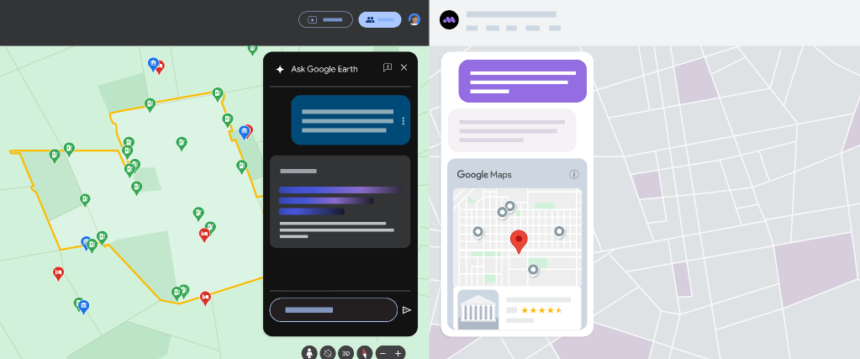Google has unveiled a whole host of new features for its Google Maps, Waze and Google Earth apps. The apps will get a number of new features thanks to the AI model Gemini.
You might also want to know how to turn off the annoying 3D buildings view in Google Maps and see the funniest images captured from Google Street View.
The biggest news is the new Ask Maps feature in Google Maps, which simply lets you ask the map app questions. For example, using Gemini, you can now ask Google Maps for recommendations for things to do with friends on a night out. The app will then list bars and restaurants or live music venues, among other things.
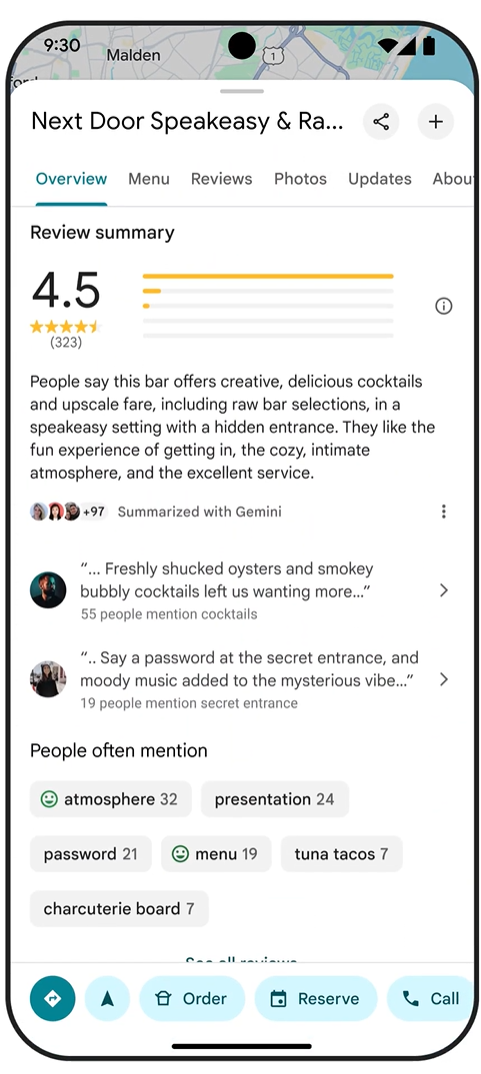
Once you’ve found a place that seems interesting, you won’t have to dig through a bunch of user reviews to see if you’d like it. Gemini will summarise the reviews so you can get a quick overview. If you still want to know more about the place, you can ask questions directly to the AI. For example, you can find out if it’s usually a noisy bar, or what choice of drinks they have.
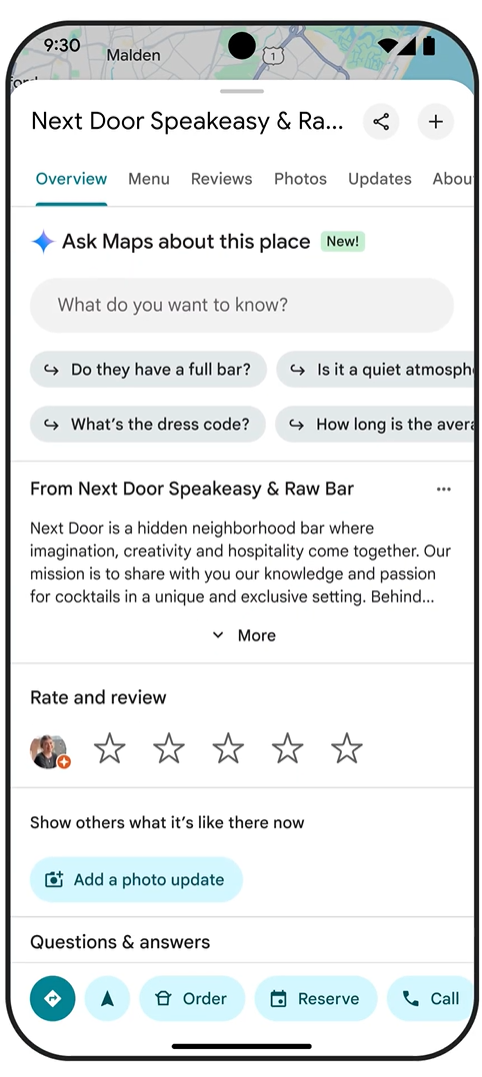
Ask Maps will be launched to Google Maps on Android and iOS in the US this week. It’s not yet clear when UK users will be able to access this service.
If you’ve already planned a destination in Google Maps, it’s now easier to explore other places along the route, such as attractions or restaurants. You should now be able to easily add stops along the journey with a new button.
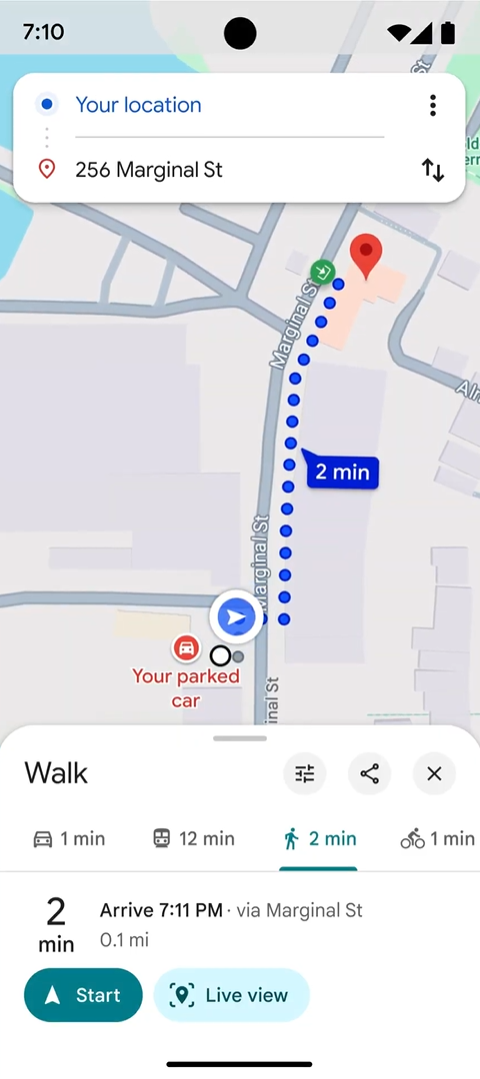
It will also be easier to get where you’re going. Google Maps will now suggest car parks near your destination, remember where you parked your car, and then guide you the last few steps to the door.
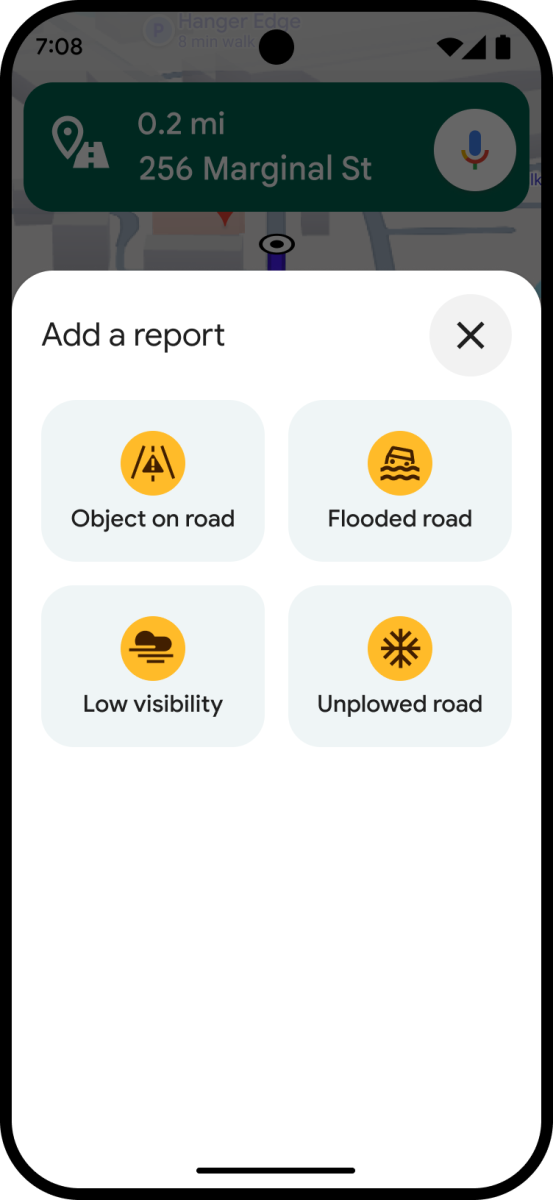
Just in time for winter tyres, Google has also launched a new weather reporting feature in Google Maps. You will now be able to report if a road is unploughed or flooded, or if visibility is poor.
The roadside exploration, parking assistance and weather reports features will be rolled out globally to Google Maps on Android and iOS.
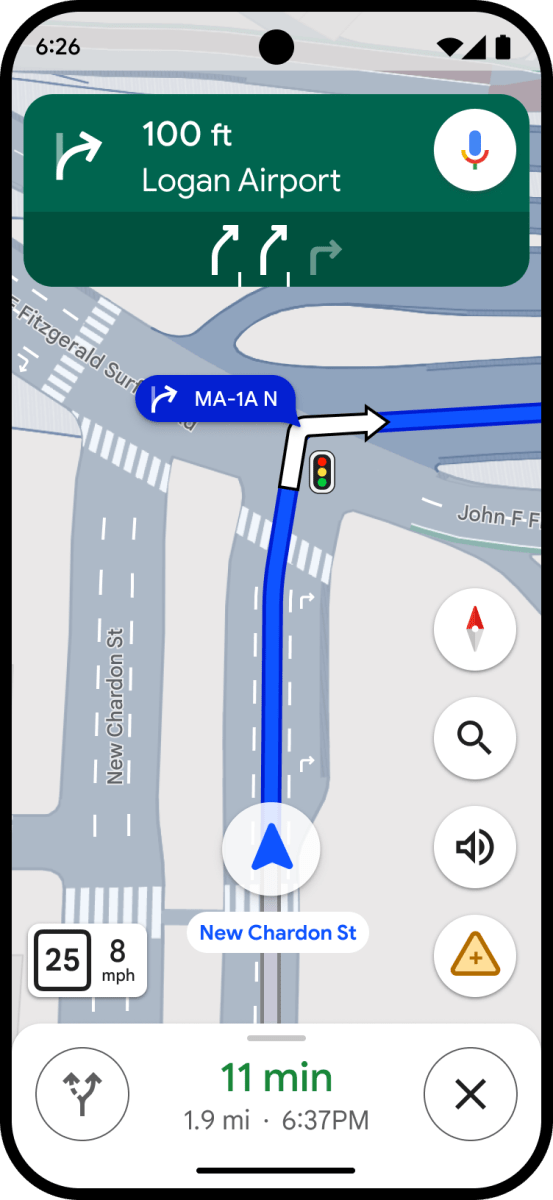
In selected cities, over 30 to start, Google Maps will also get better at helping you navigate. You will now get more precise information about which lanes you should be in, and pedestrian crossings and road signs will now be clearly displayed in the app.
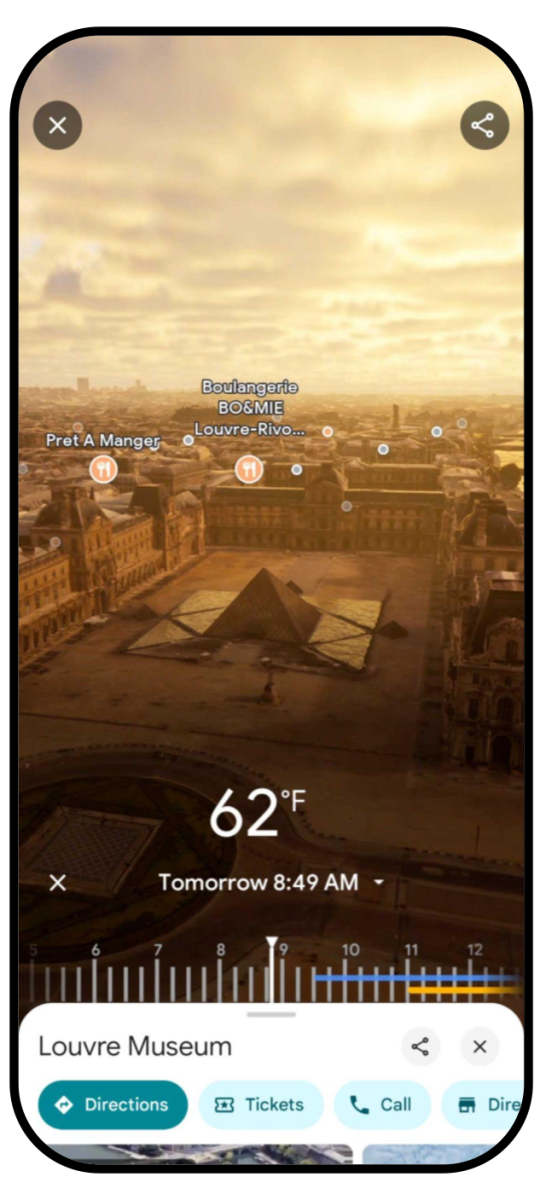
In addition to the new features, Google has also announced that the “Immersive View” mode will now be available in 150 cities worldwide.
Google Maps isn’t Google’s only map app, though. Waze has also gained some new features using AI. You will soon be able to report any obstacles you see on the road via natural speech, so you won’t have to memorise any specific voice commands.
For example, if you say that a car is double-parked or that there is heavy debris on the road, Waze will automatically set a marker to warn users that a car is on the road or that there is an object on the roadway. However, it’s unclear how well Waze will understand you if the road rage starts in earnest.
The new feature will begin beta testing in English by “trusted” Waze users this week, but more users and languages will be added in the coming months.
The other new feature of Waze is that the app will now automatically alert you if you are driving near a school during school hours so you can be a little extra on guard for children playing. School zones will appear in Waze on Android and iOS later this year.
Last up is Google Earth, which will get new AI features to help city planners, or just infrastructure nerds. Google Earth, with the help of Gemini, will now be able to answer your questions.
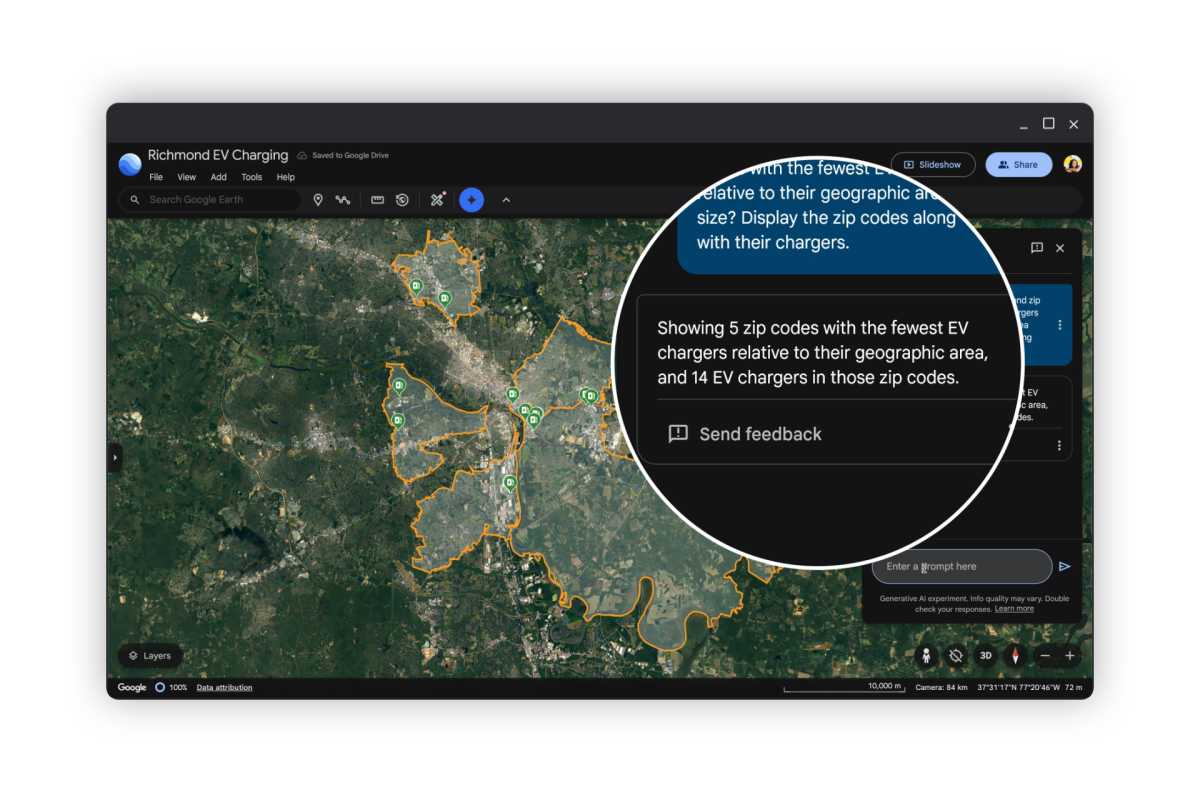
The example Google itself highlighted was to ask the app to show which five postcodes in an area had the lowest number of EV chargers. After some thought Google Earth marked out the zones, something that can be useful to know when, for example, planning for new charging points.
The Gemini features in Google Earth will start to be tested on a wider scale in November.
This article originally appeared on our sister publication M3 and was translated and adapted from Swedish.
Read the full article here

